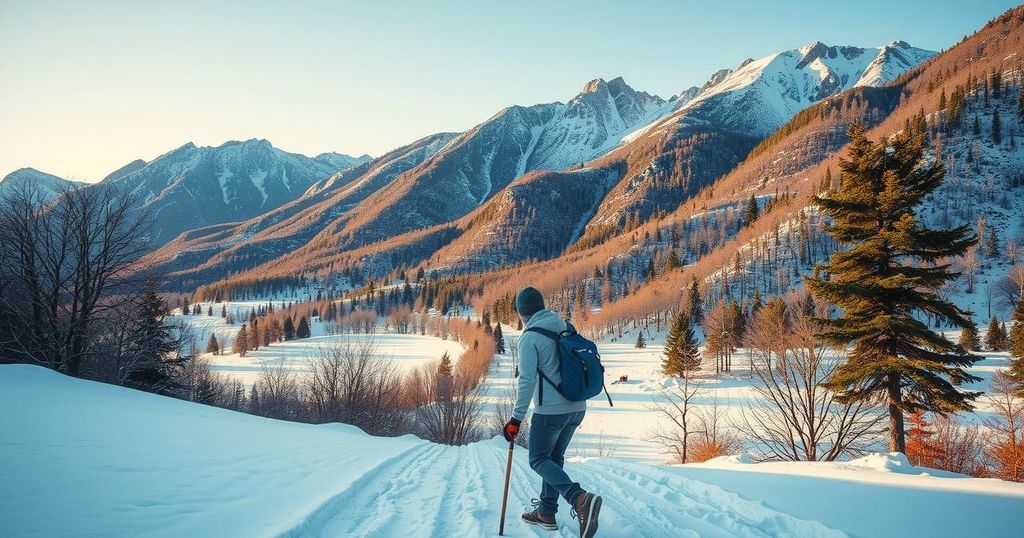A Climate Central report indicates that winter is expected to shorten by up to 10 days in the Mountain West, with states like Arizona, New Mexico, and Nevada experiencing the largest declines in below-freezing days. This trend threatens skiing seasons and ecological systems, particularly with implications for agriculture and water supplies.
This year, residents of the Mountain West can expect winter to be shortened by as much as ten days, according to a recent report issued by Climate Central. The report highlights a significant reduction in days with below-freezing temperatures, directly linked to climate change. Notably, states such as Arizona, New Mexico, and Nevada are experiencing a greater loss, averaging around ten fewer freezing days annually due to their inherently warmer climates.
Kristina Dahl, vice president of science at Climate Central, explained that in areas with naturally higher altitudes, such as Utah, Colorado, Montana, and Wyoming, the warming effect is less impactful; thus, winter days are not decreasing as significantly. In Wyoming, for instance, there has only been a loss of two below-freezing days on average. Dahl commented, “It’s not like places like Wyoming aren’t warming as well. It’s just that they’re still below that threshold.”
Idaho and Colorado are losing four winter days on average, posing potential risks to ski resorts that may have to adapt by reducing their operational seasons. The repercussions of diminished snowfall are far-reaching, influencing ecosystems as well. For example, the premature blooming of flowers due to warmer winters can disrupt pollination processes, threatening food production. Additionally, a reduction in snowpack may adversely affect water supply availability throughout the region.
Climate change has far-reaching consequences that include not only rising temperatures but also a decline in winter precipitation falling as snow rather than rain. As winter days decrease, these changes jeopardize not only recreational activities such as skiing but also ecological balance and agricultural productivity. With specific regions being affected more severely than others, it is essential to comprehend the varying impacts across the Mountain West states, which witness a range of warming trends and ecological shifts.
In summary, the ongoing impacts of climate change are manifesting in the Mountain West through a reduction in winter temperatures and the number of freezing days. With states like Arizona, New Mexico, and Nevada experiencing the most significant losses, there are serious implications for local ecosystems, agriculture and recreational industries. The findings of Climate Central underscore the urgent need for action to address these environmental challenges.
Original Source: www.kanw.com






